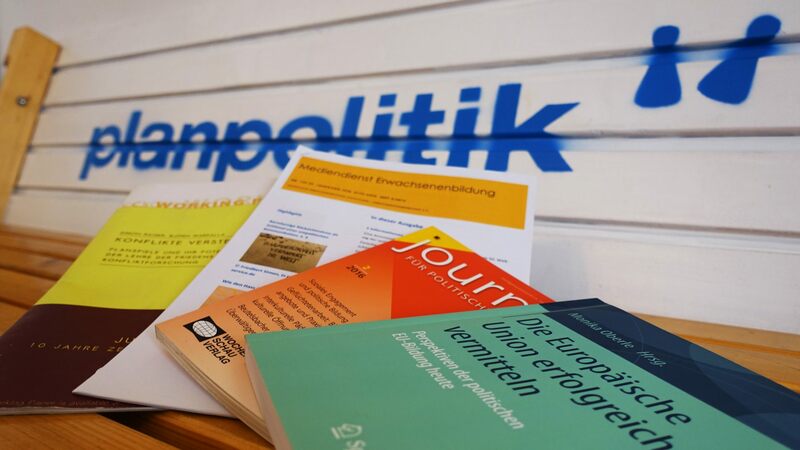At the beginning of the workshop, the participants playfully learn about the institutions and functioning of the EU as well as initial points of criticism by means of a pub quiz. This enables them to recognise and understand possible points of criticism of the EU and its institutions. A brief historical overview also helps them to understand where difficulties in the EU come from.
The participants then get together in small groups and are given a profile of person X who has a position, a point of criticism or a stereotype about the EU. With the help of a worksheet, the group now tries to find out the position of fictitious person X and enter into a fictitious dialogue with them. To do this, the small groups receive argumentation aids, but also work out for themselves what they want to say to the person. These arguments are then presented to the group and together they work out how to deal with clichés or counter negative statements. However, the aim is also to create an understanding of where criticism of the EU is justified and what role voting can play in the European elections. After collecting the discussions together, a short communication training session will give the participants further guidance on how to respond to criticism of the EU.
Similar Projects

BATNA is not just a city in Algeria
Interactive political education work always promotes key skills - whether in communication, negotiation, conflict management or teamwork. Based on this insight, we have developed a broad range of professional skills training courses in recent years....

Method training, Skills training
Welcome to Design Thinking Wonderland
Together we finally defined planpolitik's assignment: an interactive, creative, open-ended workshop accessible to people from a wide range of backgrounds, prepared in such a way that the academy team could run it themselves. After some...

Method training, Skills training
Beyond the panel discussion
How do passive listeners become active participants? How can they actively participate in discussions and exchange and have fun doing it? This is the essence of interactive methods and thus the core of our work....

Method training, Skills training
Simulation games? Yes! Take the plunge!
It will come as no surprise that we are enthusiastic about the simulation game method, because simulation games are one of the most powerful, versatile and entertaining methods in political and civic education work and...

Overcoming polarisation – learning how to deal with conflicts
Conflicts are an unavoidable part of our lives and work – and they are not just negative if we deal with them well. We have comprehensively revised and expanded our training programme in this area.